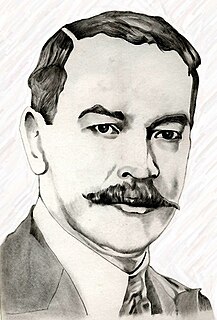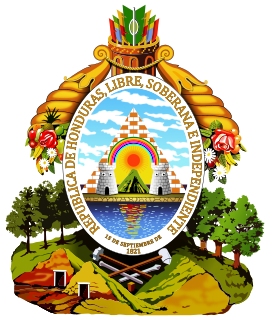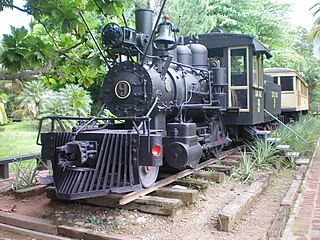Honduras was already occupied by many indigenous peoples when the Spanish arrived in the 16th century. The western-central part of Honduras was inhabited by the Lencas, the central north coast by the Tol, the area east and west of Trujillo by the Pech, the Maya and Sumo. These autonomous groups maintained commercial relationships with each other and with other populations as distant as Panama and Mexico.

Carlos Roberto Reina Idiáquez was a politician of the Liberal Party of Honduras, and President of Honduras from January 27, 1994 to January 27, 1998.

Vicente Mejía Colindres was President of Honduras between 16 September and 5 October 1919; and again between 1 February 1929 and 1 February 1933.
The 1981 CONCACAF Championship, the eighth edition of the CONCACAF Championship, was held in Honduras from 1 November to 22 November. All games were played in the Estadio Tiburcio Carías Andino in Tegucigalpa. This tournament was won by the host, Honduras, who earned their first title and secured for the first time a place in the FIFA World Cup, as the tournament also served as qualification to Spain 1982. The North, Central American and Caribbean zone was allocated two places in the final tournament. This edition was marked by an upset as Mexico, traditional CONCACAF heavyweights and needing a win to go through, were eliminated by Honduras. The 0–0 tie between Mexico and Honduras qualified El Salvador to participate in the World Cup as the CONCACAF runners-up. El Salvador also became the first Central American team to qualify for more than one World Cup. This would be the last tournament which would feature a host nation for the final round.
Authoritarian General Tiburcio Carias Andino controlled Honduras during the Great Depression, until 1948. In 1955—after two authoritarian administrations and a general strike initiated by banana workers—young military reformists staged a coup that installed a provisional junta and paved the way for constituent assembly elections in 1957. This assembly appointed Ramón Villeda Morales as President and transformed itself into a national legislature with a 6-year term.
The Revolutionary Nationalist Movement was a Honduran political party. It was formed when moderate members of the National Party of Honduras split from the party after Tiburcio Carías Andino secured the PNH nomination for the 1954 Honduras presidential election. The MNR nominee for president that year was former vice president Abraham Williams Calderón; he received approximately 53,000 of 260,000 votes.
Direct popular general elections were scheduled in Honduras for 13 October 1963.
A legislative election was held in Honduras on 7 October 1956. The people elected 58 deputies to the Constituent Assembly.
A general election was held in Honduras on 10 October 1954. The elections took place, with relative honesty.
A general election was held in Honduras on 10 October 1948. Voters went to the polls to elect a new President of the Republic and a new Congress.
A general election was held in Honduras on 28 October 1932. Voters went to the polls to elect a new President of the Republic and a new Congress.
A legislative election was held in Honduras on 28 January 1936. The people elected 59 deputies to the Constituent Assembly.
A presidential election was held in Honduras on 28 March 1936.
A general election was held in Honduras on 28 October 1928. Voters went to the polls to elect a new President of the Republic and a new Congress.
A general election was held in Honduras on 28–30 December 1924. Voters went to the polls to elect a new President of the Republic and a new Congress.

General elections were held in Honduras between 27 and 29 October 1923. Tiburcio Carías Andino won the presidential election with 47.1% of the vote. However, as no candidate had received an absolute majority in the public vote, Congress would vote on the candidates. However, Congress did not meet again until 1 January the following year. In December President Rafael López Gutiérrez declared a state of siege, suspended the constitution, and announced that he would remain in office in order to keep the peace. Although Congress was dominated by the two liberal parties, they did not want Carías, but also could not agree on a common candidate.
The Socialist Party of Honduras was a small left-wing political party in Honduras. PASO was founded in November 1978.

During the first half of the 20th century the economy of Honduras was dominated by American companies such as the United Fruit Company, the Standard Fruit Company and the Cuyamel Fruit Company, which established enormous banana plantations along the north coast. These companies quickly made bananas the primary export of the country in return for large land grants from conservative politicians. Foreign capital, life in the banana plantations, and conservatives determined the politics of Honduras from the mid-20th century to 1988.






